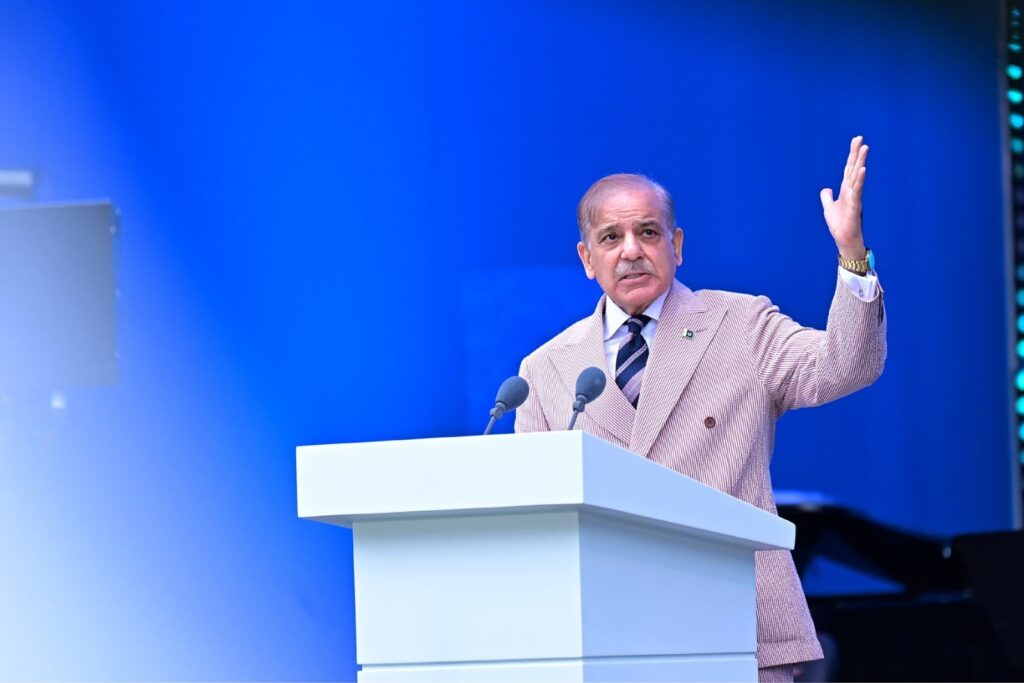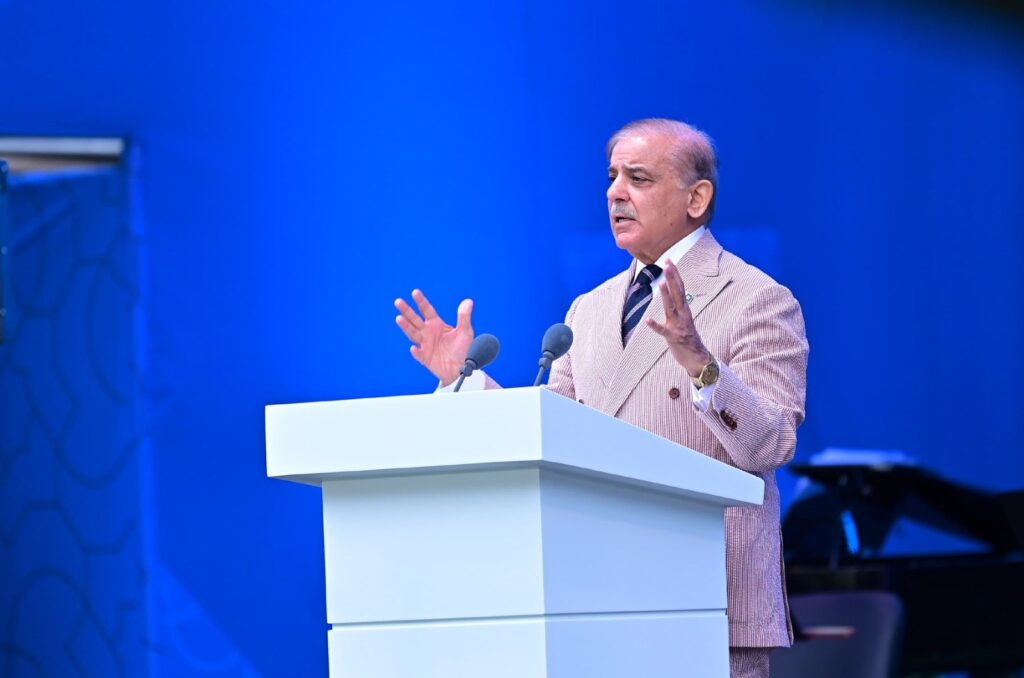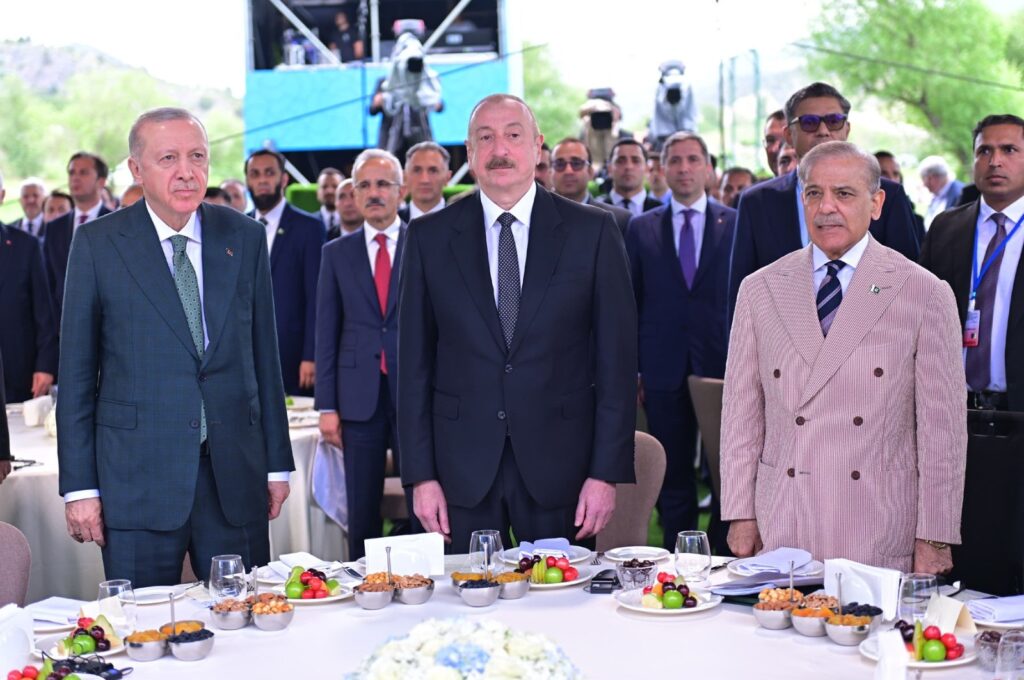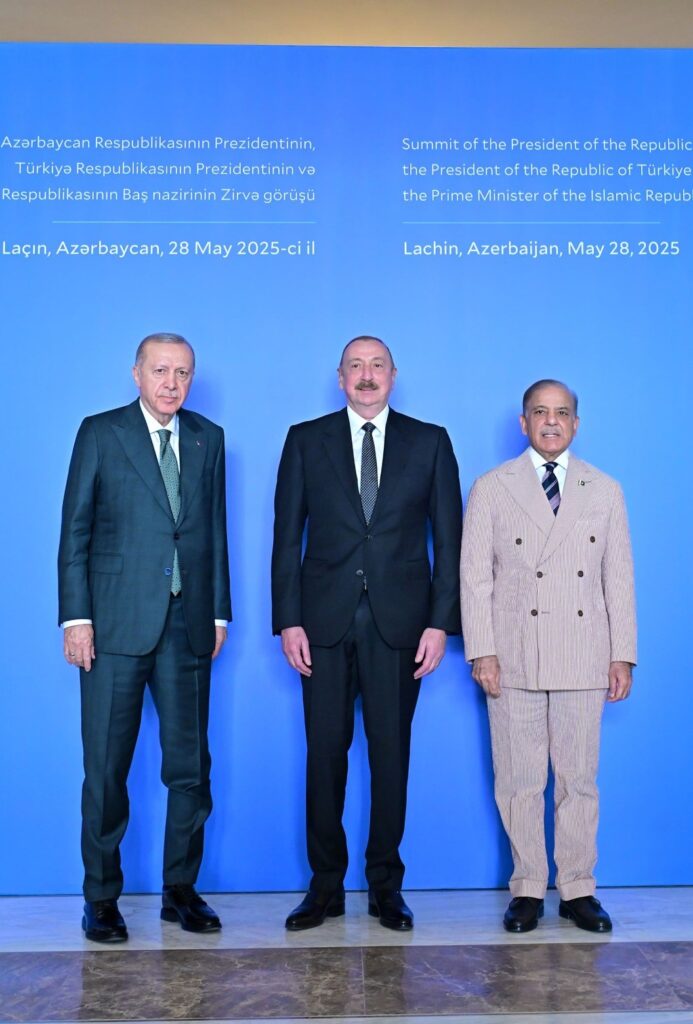Pakistan, Turkiye, and Azerbaijan Vow to Boost
Trilateral Cooperation in Lachin Summit
PM Shehbaz Highlights Strong Historical Ties
Associated Press of Pakistan

Lachin: Prime Minister Muhammad Shehbaz Sharif on Wednesday reaffirmed Pakistan’s commitment to regional peace and said that Islamabad is ready to resolve all bilateral issues with India through dialogue—provided New Delhi demonstrates sincerity and cooperation.
Pakistan Rejects Indian Provocation on Indus Waters Treaty
Speaking at the Second Trilateral Summit held in Lachin, Azerbaijan, the prime minister condemned India’s recent aggressive posture, including attempts to weaponize the Indus Waters Treaty (IWT)—a lifeline for Pakistan’s 240 million citizens.
“It is most unfortunate that India threatened to block the flow of water into Pakistan. This is not possible and will never be allowed, Insha’Allah. We are taking appropriate steps to ensure India never attempts such violations,” he stated emphatically.
He warned that any such provocation would be met with a firm response, backed by Pakistan’s armed forces, the will of the people, and the support of friendly nations.

Willing to Talk on All Issues—Including Terrorism and Trade
Prime Minister Sharif reiterated that Pakistan, as a major victim of terrorism, having lost 90,000 lives and suffered $150 billion in losses, remains committed to fighting the menace globally.
“If India genuinely wants to talk about countering terrorism, Pakistan is willing to sit at the table. But dialogue must be based on honesty and mutual respect,” he stressed.
He also indicated openness to discussing bilateral trade and economic cooperation, provided India adopts a constructive approach.
Tribute to Armed Forces, Field Marshal Asim Munir
Acknowledging the resolve of Pakistan’s military, the prime minister praised Field Marshal Syed Asim Munir, calling him a “God-fearing, fearless leader with unwavering patience and resolve” during the recent standoff with India.
He noted that India failed to provide any credible evidence in the so-called Pahalgam incident and rejected Pakistan’s call for a neutral, transparent international investigation.

Pakistan, Turkiye, and Azerbaijan Deepen Strategic Ties at Trilateral Summit
In his address, Prime Minister Shehbaz said the trilateral cooperation among Pakistan, Turkiye, and Azerbaijan is rooted in centuries-old historical, cultural, and spiritual ties.
He expressed hope that the summit would elevate their partnership to new heights and better serve the people of all three countries.
“We are united by common goals, shared challenges, and a mutual desire for peace and justice. Our alliance is built on love, trust, and the unwavering support of our citizens,” he added.
Highlighting global challenges such as armed conflicts, diseases, climate change, and economic crises, PM Sharif emphasized that Pakistan, Turkiye, and Azerbaijan have chosen compassion over conflict.
“Our unity will usher in an era of peace and prosperity not just for our people, but for the entire region,” he stated.
Azerbaijan and Turkiye Reaffirm Support for Pakistan
President Ilham Aliyev of Azerbaijan emphasized the importance of unity among the three countries based on shared history, culture, and religion. He revealed Azerbaijan’s plan to invest $2 billion in Pakistan through joint development projects.
Aliyev also called for deeper cooperation in fields such as artificial intelligence, space research, academic exchange, tourism, and cultural events.
Expressing concern over India-Pakistan tensions, he reiterated Azerbaijan’s solidarity with Pakistan and advocated peaceful resolution through dialogue under the UN Charter.

President Erdogan Calls for Strategic Partnership and Peace
Turkish President Recep Tayyip Erdogan congratulated Azerbaijan on its Independence Day and praised the growing strategic alignment among the three nations.
He referred to Prime Minister Sharif’s recent visit to Istanbul and the productive discussions held on elevating the High-Level Strategic Council framework.
Erdogan lauded Pakistan’s leadership during the recent India conflict and credited the ceasefire to Pakistan’s diplomatic maturity.
He emphasized the need for joint projects in trade, investment, and digital transformation, and condemned Israeli aggression in Gaza, urging the global community to press for a ceasefire and unhindered humanitarian aid.






















